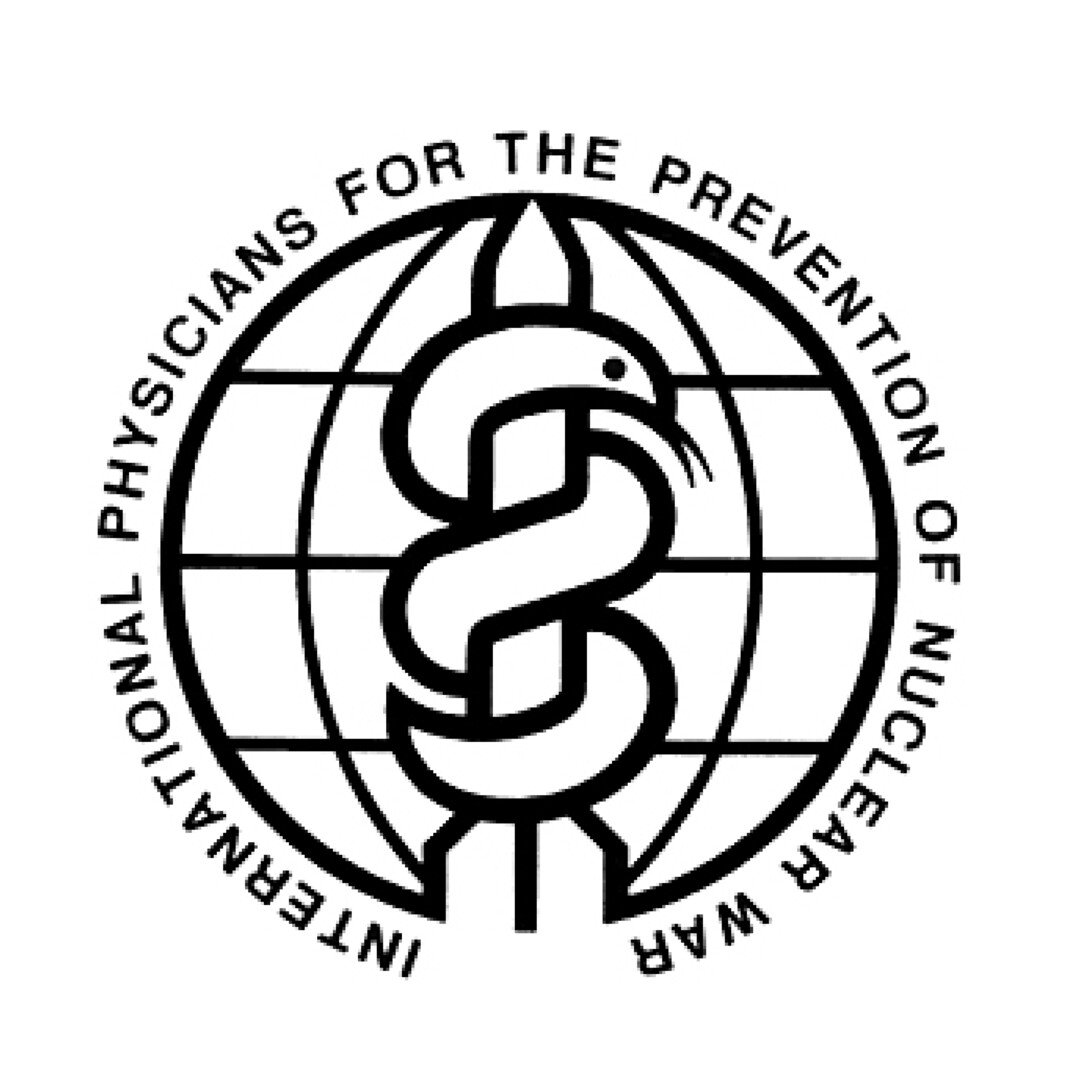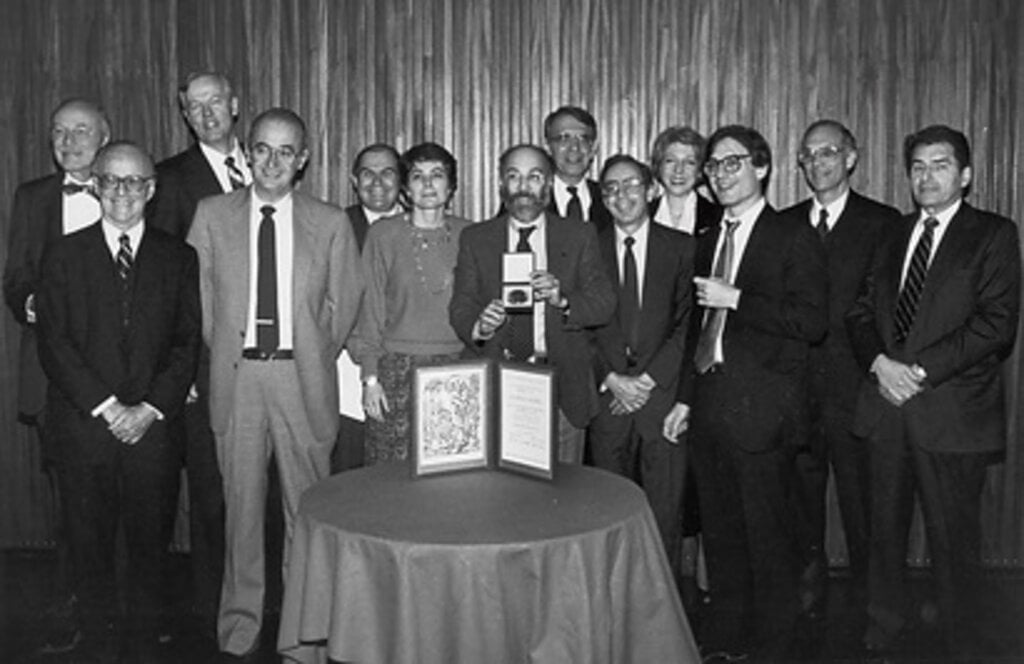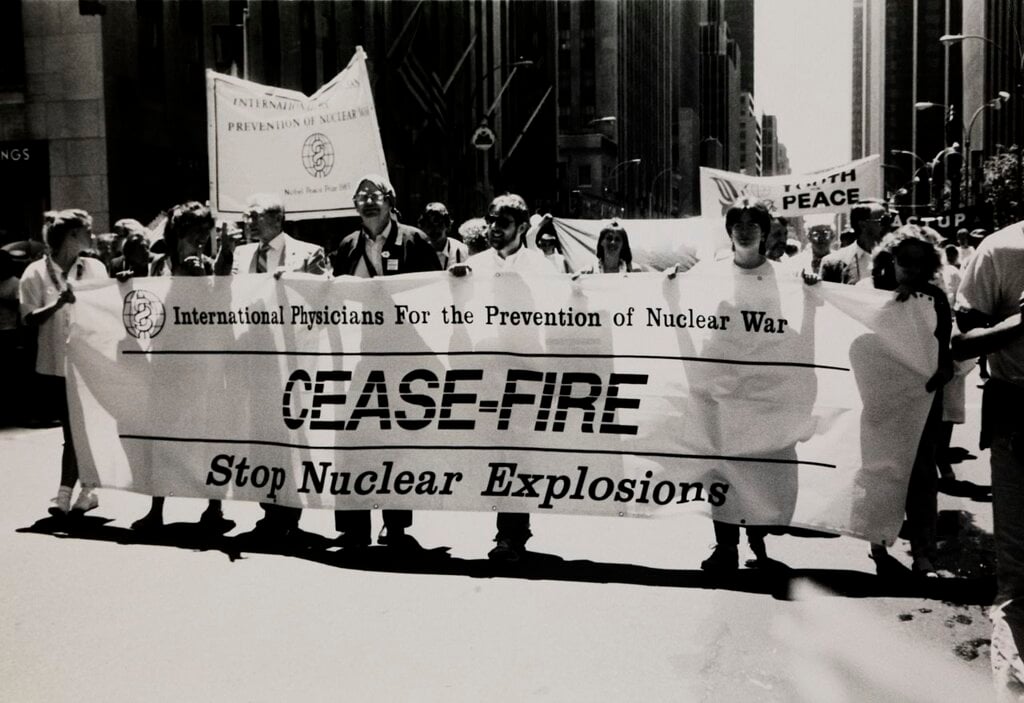International Physicians for the Prevention of Nuclear War
Speed read
International Physicians for the Prevention of Nuclear War (IPPNW) was awarded the Nobel Peace Prize for mobilising the influence of the medical profession against the threat of nuclear weapons.

Full name: International Physicians for the Prevention of Nuclear War
Native name: International Physicians for the Prevention of Nuclear War (IPPNW)
Founded: 1980, Boston, MA, USA
Date awarded: 5 October 1985
Opponents of nuclear weapons
The IPPNW was only five years old when it was awarded the Nobel Peace Prize. Two cardiologists, Bernhard Lown (USA) and Yevgeny Chazov (Soviet Union), became acquainted in the 1960s, and both were concerned about the medical aspects of a nuclear war. Although they belonged to opposing sides in the Cold War, they founded an international organisation for physicians to counter the nuclear arms race. Physicians worldwide were enthusiastic. By 1985, the organisation had 135,000 members in 40 countries, with 28,000 members in the USA and 60,000 in the Soviet Union. The IPPNW held annual conferences to spread information on the consequences of nuclear war. It called for a halt to nuclear testing and demanded that the superpowers refrain from a nuclear first-strike in conflict situations.
"It is the Committee’s opinion that this organization has performed a considerable service to mankind by spreading authoritative information and by creating an awareness of the catastrophic consequences of atomic warfare."
From the Norwegian Nobel Committee’s Announcement, 10 October 1985.
Nuclear winter and a medical prescription
The IPPNW described the effects of nuclear war as part of its effort to encourage people to oppose nuclear weapons. The term “nuclear winter” quickly became a concept familiar to young and old alike. If enough powerful nuclear bombs exploded, dust and soot would darken the sky. Sunlight would disappear for weeks and months, and temperatures would drop dramatically. The IPPNW also issued a “medical prescription.” It demanded that the superpowers stop nuclear testing and nuclear weapons production, calling instead for the money to be used to alleviate poverty and hardship.
A controversial choice
Most political leaders in the Nordic region supported the decision to award the peace prize to the IPPNW. But US President Ronald Reagan remained silent, and Bernhard Lown had to constantly repudiate claims that the IPPNW was being exploited in Soviet propaganda. In addition, Yevgeny Chazov sparked off a personal conflict. In 1973 he and other Soviet scientists condemned human rights advocate Andrei Sakharov, who was awarded the peace prize two years later. They wrote that Sakharov was a “tool for enemy propaganda against the Soviet Union and other socialist countries.” During the award ceremony in 1985, many people demonstrated in support of Sakharov.

"We physicians who shepherd human life from birth to death have a moral imperative to resist with all our being the drift toward the brink. The threatened inhabitants on this fragile planet must speak out for those yet unborn, for posterity has no lobby with politicians."
Bernhard Lown, Acceptance Speech, 10 December 1985.
IPPNW 2011
The IPPNW’s website shows an impressive level of activity during the last 30 years. To quote the organisation: “IPPNW affiliates are national medical organisations with a common commitment to the abolition of nuclear weapons and the prevention of war. Affiliates range in size from a handful of dedicated physicians and medical students to tens of thousands of activists and their supporters. As independent organisations within a global federation, IPPNW affiliates engage in a wide variety of activities related to war, health, social justice, and the environment.”
"We were among the first to demolish the nuclear illusions that existed and to unveil the true face of nuclear weapons - the weapons of genocide."
Yevgeny Chasov, Acceptance Speech, 10 December 1985.

Learn more
Read the history of the International Physicians for the Prevention of Nuclear War.
Disclaimer: Every effort has been made by the publisher to credit organisations and individuals with regard to the supply of photographs. Please notify the publishers regarding corrections.
Nobel Prizes and laureates
Six prizes were awarded for achievements that have conferred the greatest benefit to humankind. The 14 laureates' work and discoveries range from quantum tunnelling to promoting democratic rights.
See them all presented here.
